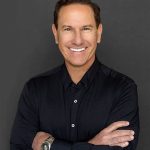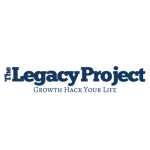Andrew is the co-founder and Managing Director of Yuppiechef, and heads up their strategy and technology. After developing websites and intranets for clients since 1999, he founded Yuppiechef in 2006 with Shane Dryden as a part-time venture while they continued to run a small web agency. Yuppiechef has since grown in to one of South Africa’s leading online retailers, winning the country’s E-commerce Awards for best overall site each year since 2010.
How We Got Started | The way we decided to do it was to take out 3 days, which was a Thursday, Friday, Saturday, and just start something. And this was in 2005 and there were 4 of us involved, Shane and myself and 2 others and we each came with a product, so we had to come with something that we could sell online. The product we ended up choosing was called Bug Zapper which was a, you’ll have to search what a bug zapper is.
It’s a racket for swatting flies and mosquitoes. ……With the Thursday, Friday, Saturday we found a courier company, we hooked up some credit card facilities, we built a website, and we made it live on Saturday and we only sold one, which was to my mom, and we kind of forgot about the marketing part, which was a bit of an oversight. But we sold over a million rand in Bug Zappers in 8 years before handing the site over!
The Formation of Yuppiechef | The idea started in 2006… Shane had the idea to start selling kitchen tools and he asked a chef friend of his, “What are a handful of kitchen tools that you couldn’t live without?” Then we’ll put up a site and we’ll sell those. And so she said, “Well I don’t know about a whole lot, but there’s this one,” which was a brand but you couldn’t easily get in South Africa. We happened to know the importer of that brand so we saw there was a disconnect between the kitchen products or the brands that people wanted to buy and the stores that were selling them…
So we started the site with one brand, not even any credit card facilities; you shopped through a shopping cart and you paid through a bank transfer and we launched it in August 2006.
The Importance of Timing | We have benefitted a lot from good timing. And I think a lot of successful people can point to their hard work and their genius and their great team but they leave out the fact that you have to be in the right place at the right time. And really the last six years in South Africa have been an excellent time to start something in ecommerce. Plus we were riding the wave of Masterchef and Jamie Oliver and just that cooking is sexy and cool.
Seeing the Future | The future’s already here; it’s just not very evenly distributed. The great thing about online is that we can see the future. You just have to look at other countries and that is the future. Traditional retailers and other people in South Africa are saying, “Ah, nobody shops online…”, but that’s ridiculous. Nobody shops online today, but that doesn’t mean it’s not going to happen. So it’s like having a crystal ball, but it should be plain for everyone to see. Everyone who’s ever been overseas or lived overseas will say all they do is shop online and why do we think that’s not going to happen here? So there are so many opportunities to be taken.
The First And Most Important Ingredient | To being successful is to just get into the kitchen.
Cash Flow Benefits of Ecommerce | Fortunately the nice thing about the economics of selling physical products is that the customer can pay you today and you can order from the supplier and pay the supplier in 30 days’ time, so you can effectively have a positive cash flow from the beginning because you are being funded by your customers’ cash.
Ecommerce Is Really Retail | You think ecommerce and you think credit card facilities and shopping carts and we forget that ecommerce is retail. And retail is really supply chain management and branding and marketing and customer service and selling. So it’s sourcing the right products and then having them on the shelf to be able to start marketing, telling people about it and then serving the customers. You are dealing with all the same things as traditional retailers, your shop front just happens to be a technical store.
Customer Service Is Key | I couldn’t imagine running a business and not focusing on customer service. It’s a big part of what we believe is important for online because there is no physical interaction with the customer.
So we try in all our interactions to prove that we are real people. The handwritten card is really about showing it wasn’t robotic and that if something goes wrong you’ll be able to phone and make contact. And so if you order a 60 rand spatula and we deliver it to you with a handwritten card, and you’re blown away and you’re more likely to come back and by a 5,000 rand set of cookware, because you believe that there’s going to be a human being to help you out.
How We Get Customer Service Right | Most of our customer service is just employing people who care and creating a culture of really genuinely caring about customers. Customer service is so bad in South Africa that we’re coming off a ridiculously low base. Customers who have a problem and get it solved have a bigger lifetime value than customers who never have a problem.
It Has To Start From The Top | You can’t have a company culture of caring if the people who are setting the culture don’t care themselves.
Finding Your Niche | You need to find the intersection between an opportunity that exists in the market and something you’re good at and something you enjoy.
Money Can’t Be The Focus | If you wouldn’t want to do what you’re doing without money, or at least without much money, it’s going to be very difficult, because so few businesses get off the ground as quickly as the founders think they’re going to. They might be doing work that they don’t enjoy but they think it’s okay because just around the corner is all this money that’s going to come from it, but there very seldom is. A lot of the time in your own business it’s years and years and years before you make any money. And then more years before you make enough money to stop doing whatever your other work is. And if you don’t actually enjoy the process and enjoy the journey of what you’re doing then you’re lost.
The Meaning of Life | A big part of the meaning of everything for me is finding out what am I uniquely supposed to be doing. What is unique in me that’s not in anyone else. And you can call that “what have I been created to do”, or “what am I destined to do”, or “what has luck made me good at doing”? But whatever it is, to understand yourself and understand what you offer to the world is something I don’t think a lot of people do. if I understand who am I and what am I better at than anyone else at doing and what should I avoid doing because I really suck at it, I’m going to be the biggest contribution to the world around me. Very often that journey of self-discovery leads to the discovery of an even bigger meaning and purpose in life.

Lee Colan Legacy Project, Ph.D., co-founded The L Group, Inc. in 1999. Lee’s passion for serving leaders enables him to deliver cut-through-the-clutter tools that elevate leaders and their teams. He was nominated for the 2013 Thinkers50 Award for best management thinker globally. Lee possesses an in-depth understanding of business, people and organizations. He blends this […]

Former Bafana Bafana player and Chairman of Football Magic Foundation: George is a former international football striker who played for Hellenic FC, Seven Stars, AmaZulu and most notably Bafana Bafana in the 1994 World Cup qualifiers. George then applied his football skills and experience to a distinguished career in football media publishing with Kickoff magazine, […]

Oscar Monama is a director of Strategy and Marketing for I Am Emerge Pty Ltd which he co-owns. It is a creative agency that creates value for money through creative concepts, derived from observing trends in consumer living and society, while immersing clients brands within consumer’s daily life activities in order to effectively fulfill business […]

Dr Sherylle Calder is a visual skills coach and guru. She is a sport scientist and performance coach, who is also known as “The Eye Lady”. Dr Calder has helped teams win 2 back-to-back Rugby World Cups amongst many other sporting trophies and her expertise in this field has long been recognised by the top […]

Dr. Reza Aslan is an internationally acclaimed writer and scholar of religions, and the author of the #1 New York Times Bestseller Zealot: The Life and Times of Jesus of Nazareth. Reza Aslan | The Legacy Project He is the founder of Aslan Media, a social media network for news and entertainment about the Middle […]

From the window of my top floor office in Cape Town I can see Lions Head and Table Mountain. I can also see the majestic and totally luxurious Cape Grace Hotel, one of the many hotels that Stuart Brand and his family built up over the course of generations, before selling out to the International […]

Vivek Wadhwa is a Fellow at Arthur & Toni Rembe Rock Center for Corporate Governance, Stanford University; Director of Research at the Center for Entrepreneurship and Research Commercialization at the Pratt School of Engineering, Duke University; and Distinguished Fellow at Singularity University. He is author of “The Immigrant Exodus: Why America Is Losing the Global […]

Michael Jordaan, Venture Capitalist and wine enthusiast stepped down as CEO of First National Bank, one of SA’s largest banks with a customer base of nearly nine million, in August 2013 to pursue his passion for entrepreneurship. With more than 20 years’ experience in the financial services sector and nearly a decade at the helm […]
There are no results matching your search
These remain the property of its owner and are not affiliated with or endorsed by WeSpeak Global.
Our Mission
© All rights reserved 2025. Created using VOXEL THEME